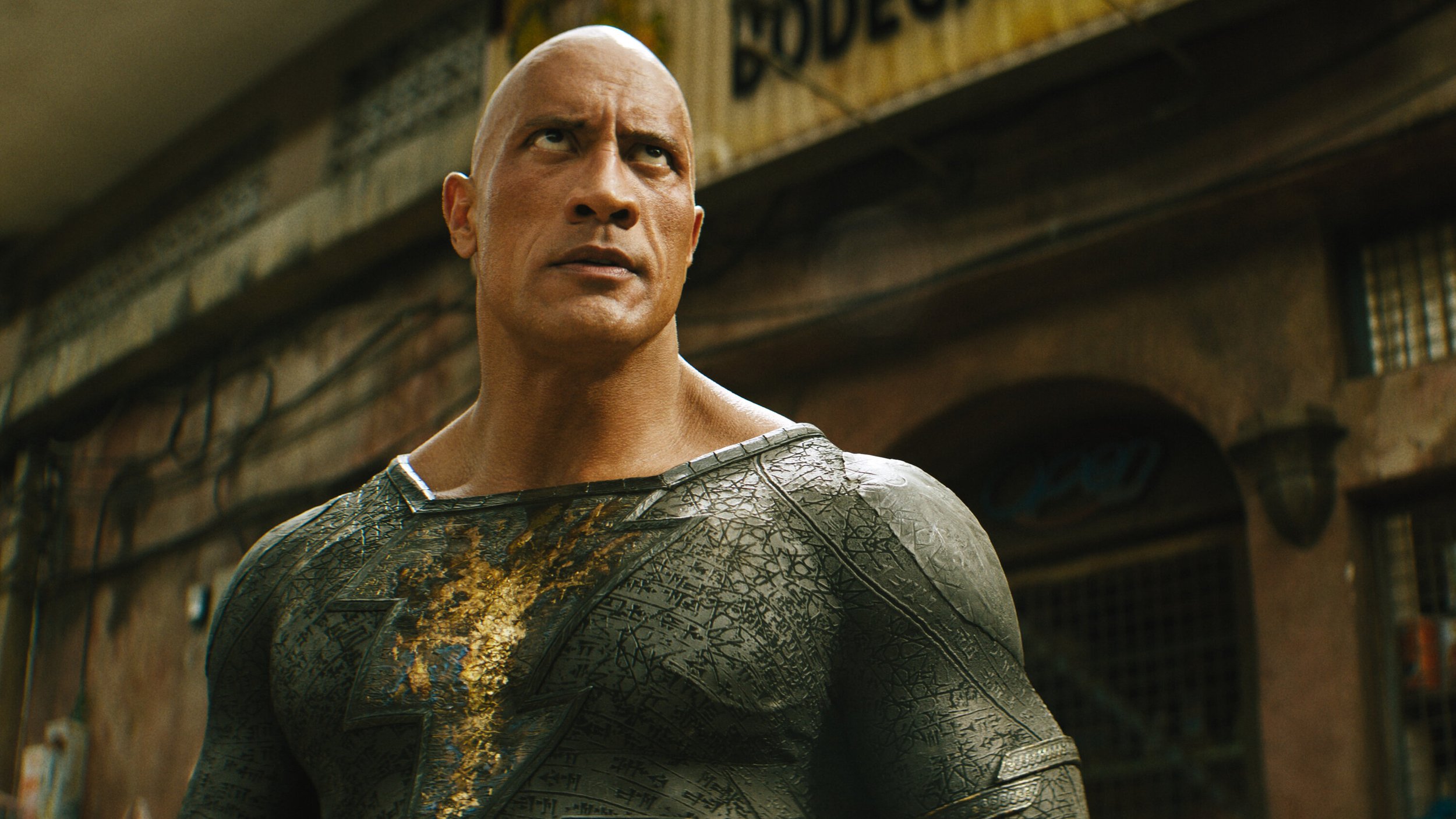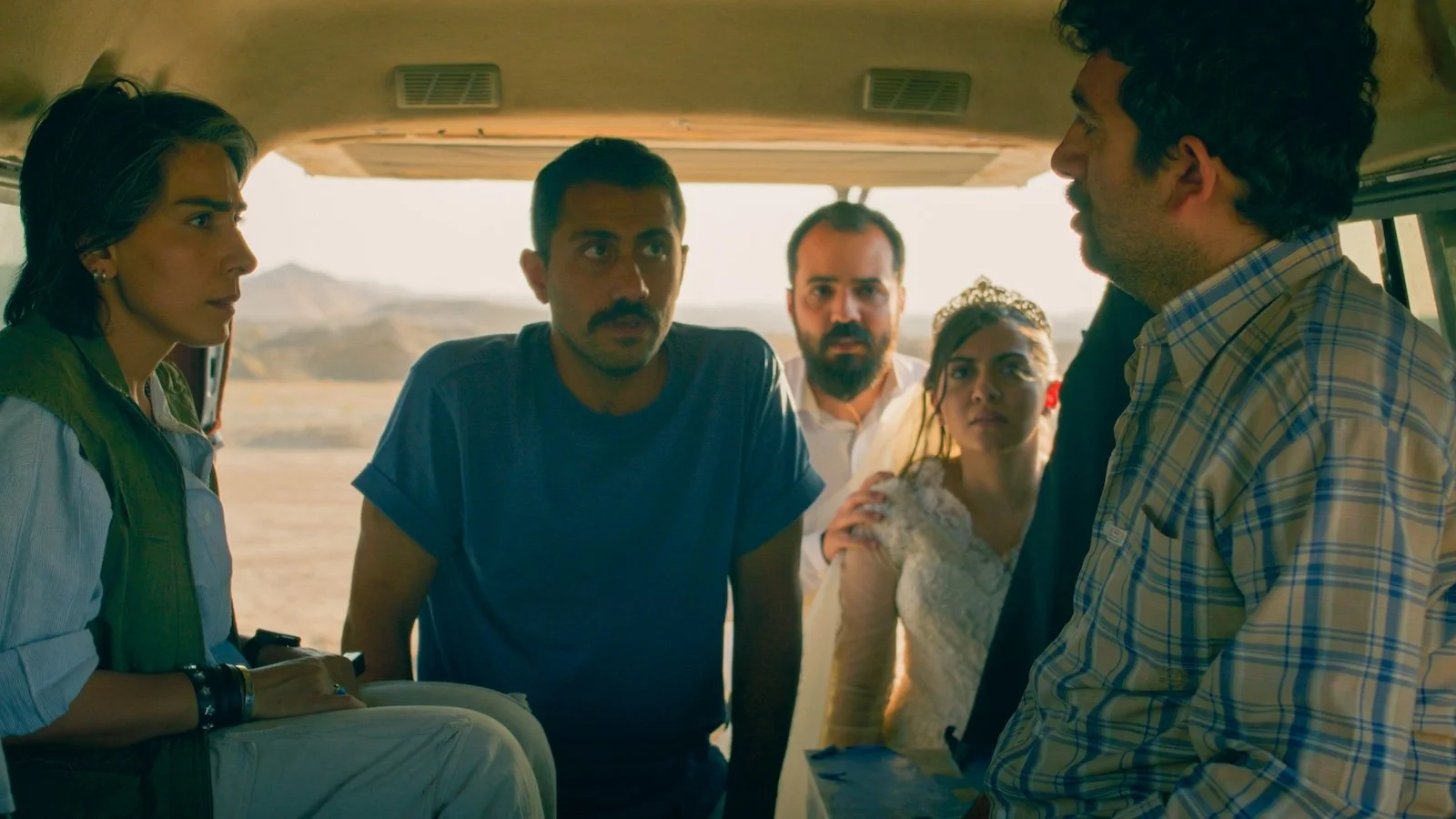Review: Black Adam (2022)
For years now, the executives at Warner Bros. have talked about wanting to leave the style and storytelling approach of Zack Snyder behind, shift the focus to character, and adopt a less dour filmmaking style in their DCEU movies. Black Adam proves the lie in these comments, as the film is a pale imitation of Snyder. It’s dour, dark, and full of speed-ramped action scenes and flashbacks to ancient times that look like they’d belong in Snyder’s 300. And more importantly, unlike the films of Snyder, Black Adam doesn’t have much in the way of character or thematic resonance. It’s all style, no substance, and truly one of the most haphazardly structured superhero movies in recent years. No wonder Warner Bros. wants to wipe the slate clean on the entire DCEU and start over.
Let’s begin with the structure of Black Adam, as its nonsensical storytelling approach sums up what a dud this film is. The film’s protagonist, Dwayne Johnson’s Teth-Adam, hardly features within the first 30 minutes of the film and then doesn’t actually speak much until the Justice Society shows up. Until then, we follow an archaeologist, Adrianna (Sarah Shahi), and her son, Amon (Bodhi Sabongui), who are trying to uncover ancient powers in the fictional Middle Eastern nation of Kahndaq, while also trying to throw off the vaguely fascist military presence that seems to control the city.
Once Teth-Adam does show up, the plot hinges on trying to convince him that he’s a hero so that he’ll save the city. Most of the dialogue in the film consists of Adrianna and especially Amon calling Teth-Adam a hero, to which he soberly demurs, “I’m no hero.” Repeat this for about an hour and a half and you’ve got the arc of Black Adam.
Now, of course, this is an oversimplification. There are attempts at character development, which mostly stem from Teth-Adam’s life as a slave in 2600 BC. There is the conflict with the Justice Society—Hawkman (Aldis Hodge), Atom Smasher (Noah Centineo), Cyclone (Quintessa Swindell), and Doctor Fate (Pierce Brosnan)—who view Teth-Adam as a threat to the world. (The Justice Society is a Golden Age precursor to the Justice League in the comics, but here, it plays like a low-rent version of the Justice League.) The Justice Society fights Teth-Adam, but neither side’s heart is in it and you wonder who the villain in the film is supposed to be. Characters float around like they’re treading water and every character seems to wring their hands over the idea of a hero killing a person—which is patently absurd in an in-film universe in which Superman and Batman both kill people. Eventually, around 90 minutes into the film, the Big Bad finally appears and you get the city-smashing climax that is in all these superhero films—and another thing that Warner Bros. constantly said they wanted to move away from.
The crux of Black Adam seems to be finding the hero that the nation of Kahndaq needs to throw off its oppressors and save it from ancient demons. Is there any mystery that this hero is Teth-Adam? He’s on the poster. There’s no tension in this storytelling approach, no suspense, no anticipation. Instead, the filmmakers try to mine tension over the mystery of what name Teth-Adam will choose as a superhero. But again, the answer is on the poster! Black Adam. We know that’s what he’ll be called, so why spend so much time building this up like it’s some great mystery?
I don’t want to be unkind to the film, which apparently was a passion project for Dwayne Johnson. But it is somewhat baffling that all those years of work produced a film that seems like a selection of Zack Snyder’s B-roll with hardly a plot or character worth caring about, save Pierce Brosnan’s Doctor Fate, who’s ability to see into the future is more intriguing than anything else happening in this film.
Not that Black Adam is poorly made from a technical point of view. The grainy digital footage, the desaturation, the narrow depth-of-field, the speed-ramped action scenes, lighting bolts blowing up demons, and characters punching mercenaries through buildings—that’s all cool. Jaume Collet-Serra, who is something of a B-movie maestro with his Liam Neeson actioners like Unknown and Non-Stop, knows what he’s doing with a camera. Black Adam is pretty fun to watch in the most superficial manner possible. There’s nothing that makes you cringe like the tonal deformity of Wonder Woman 1984. But if the only thing going for this movie is the style, which although slick, pales in comparison to that of Zack Snyder, what’s the point of the whole thing? Dwayne Johnson doesn’t even seem to be having much fun. He’s a charismatic actor. He’s not allowed to be charismatic here, as it would clash with the dour tone. So much for attempting to pivot from the Snyder approach.
Now that the DCEU is going to be wiped away to make room for James Gunn and Peter Safran’s DCU, Black Adam seems a prime example of what got Warner Bros. to this moment and what went wrong. It’s flashy and big and loud and bizarrely written. It’s a movie that says it’s something new, but it’s actually the same as what we got before, only worse. It’s the kind of movie that seems doomed to become a footnote and little more than the answer to a trivia question about the one time Dwayne Johnson played a superhero.
4 out of 10
Black Adam (2022, USA)
Directed by Jaume Collet-Serra; written by Adam Sztykiel, Rory Haines, Sohrab Noshirvani, based on characters from DC; starring Dwayne Johnson, Aldis Hodge, Noah Centineo, Sarah Shahi, Marwan Kenzari, Quintessa Swindell, Pierce Brosnan.



Nia DaCosta’s sequel to 28 Years Later pits two competing theologies of death against each other.